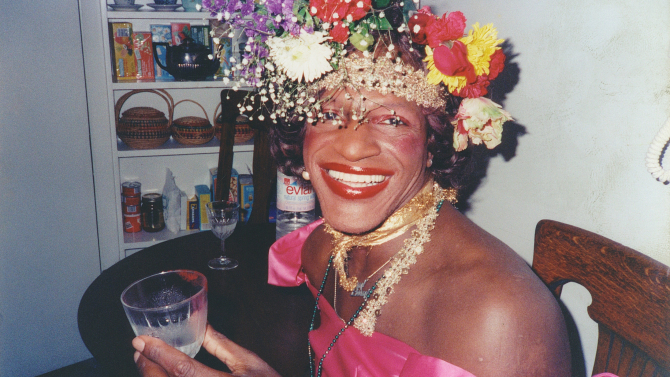Statement from Kris Hermanns, Jeremiah Allen, and Gunner Scott
Since the initial release of the film The Death and Life of Marsha P. Johnson, Pride Foundation has supported its viewing across the Northwest—from large venues at film festivals, to small gatherings in places like Missoula, Montana.
For every one of these viewings, our goals were clear: to lift up the voices and stories of transgender women of color, and to ground ourselves and our communities in the true history of the LGBTQ movement.
So when we heard this past weekend that Reina Gossett, a transgender woman of color who is a filmmaker in New York, had accused David France—the white, gay, non-transgender filmmaker behind The Death and Life of Marsha P. Johnson—of stealing her work, we knew we could not walk away silently.
As a grantmaking organization, we believe we have a responsibility to utilize our voice and our networks to further constructive dialogue around inequities. We see this as an opportunity to engage in critical reflection and questioning—not only for David France and others who worked on this film, but also for our communities. We must keep challenging a society that continues to use institutional racism, sexism, and transphobia to limit opportunities and resources for transgender and queer people of color, particularly transgender women of color.
Regardless of the controversy surrounding it in this moment, The Death and Life of Marsha P. Johnson explores the life and death of an incredible, courageous woman who helped build a movement, and her story must be told—from different angles, with varied focuses. However, we also believe there must be a conversation to follow the film, where we can engage in critical dialogue together, as a community.
For this reason, this now FREE showing of The Death and Life of Marsha P. Johnson at the Seattle Twist Film Festival will have a facilitated discussion immediately following the film. This will not be the first or the last conversation, but instead one in a continuing dialogue where we will ask our community to join us, contribute your voices, and help lift up the voices of others.
We’d like to leave you with the words of Jamilah King, whose Mother Jones article captures much of the nuance and complexity of this controversy:
“At its core, the discussion over France’s film brings to light questions of race, gender, access, and privilege: Who has the right to represent whom? Why and how do we account for a person’s privilege when building a historical record? They are questions, as Gossett suggests, that in many ways trace the struggles Johnson waged during her lifetime and that black transgender women are still fighting today.
“In the end, France’s film is an important addition to the historical record on Marsha P. Johnson’s contributions to activism. But it’s worth asking why and how he obtained the access to tell that story, and why so few transgender women of color are afforded the same privileges. The answers to those questions prove that Johnson’s fight—for justice, for safety, for inclusivity—is far from over.”
We hope to see you for this free showing and community conversation on Wednesday, October 18th at 9:15pm at Northwest Film Forum. We look forward to continuing a dialogue about access, opportunities, and who can or cannot tell the stories of those who have given so much to our movements, yet received so little in return.
We also ask that you support organizations and individuals doing the work of uplifting and supporting transgender women of color, such as:
- U.T.O.P.I.A Seattle is committed to creating safe spaces for Pacific Islander LGBTQI+ communities, in particular transgender women of color engaged in or coming out of street work
- Entre Hermanos provides culturally responsive programming to serve transgender Latina women
- Queer the Land, a collaborative project grounded in the self-determination of queer and trans people of color
- Sankofa Collective Northwest promotes the health and well-being of Black LGBTQ people in Portland, OR
